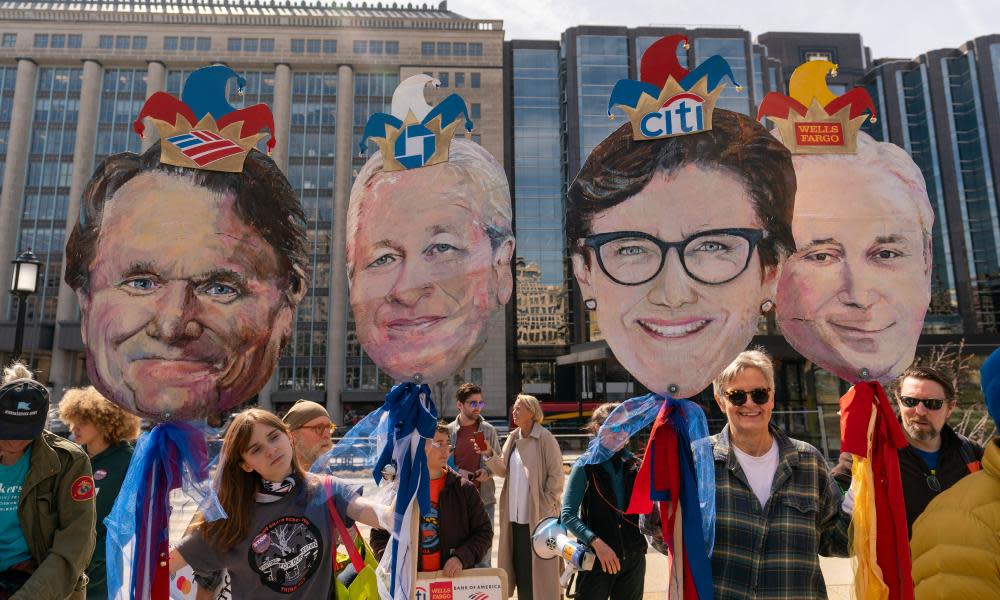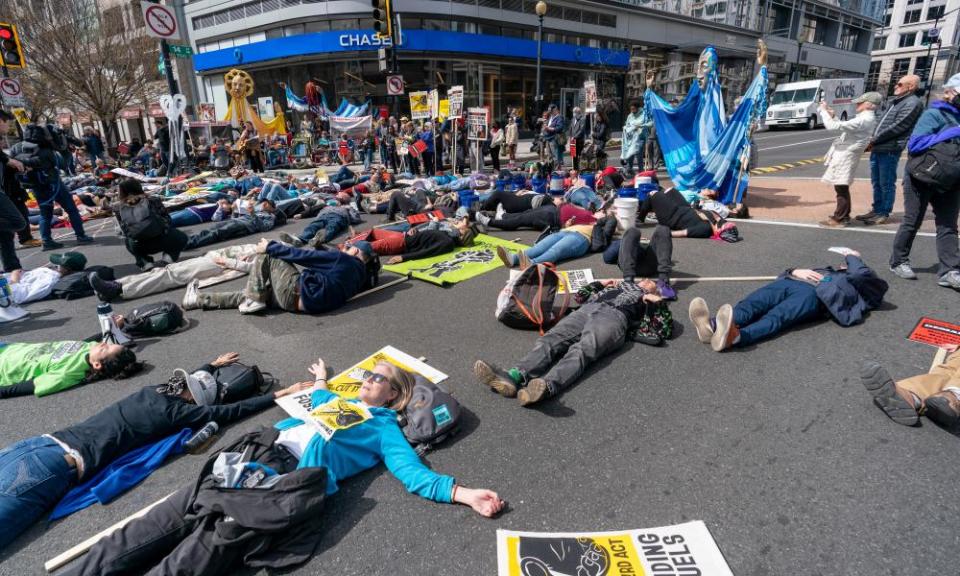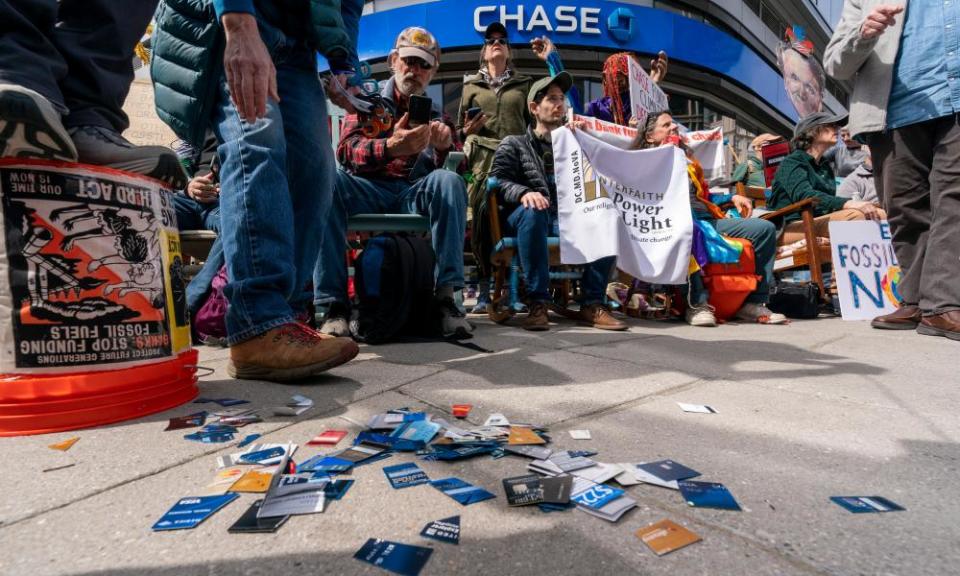Older Americans protest against ‘dirty banks’ funding oil and gas projects

Hundreds of older Americans gathered in Washington on Tuesday to protest against four of the country’s largest financial institutions, cutting up their credit cards in an act of defiance meant to condemn the banks’ funding of oil and gas projects.
The protesters marched to the downtown DC branches of the four targeted “dirty banks” – JPMorgan Chase, CitiBank, Bank of America and Wells Fargo – before staging a “die-in” to symbolize the global threat posed by fossil fuels. In a nod to the age of the protest’s participants, demonstrators sat in painted rocking chairs as they chanted “Cut it up!” to those slashing their credit cards outside the banks’ branches.
“It is time for these banks to start acting responsibly,” climate activist Bill McKibben said at a rally that preceded the march. “We may be sitting down in rocking chairs, but we are standing up today.”
The DC protest, one of more than 100 such events unfolding across the country on Tuesday, was organized by the climate group Third Act. McKibben, who is 62, co-founded the group last year to mobilize older Americans on environmental issues and provide support to the younger progressives who have led the way on climate activism in recent years. One protester carried a sign that included photos of her family and read: “I am doing this for my grandkids.”

“Young people have been at the absolute forefront of this movement from the very start – and with good reason, because they’re going to bear the brunt of this. I’m going to be dead before it’s at its absolute worst, but they’re not,” McKibben said on Tuesday. “So it is incredibly beautiful to see across the country, older Americans joining in, backing up, showing support, standing up behind those young people. It is really powerful.”
Ben Jealous, executive director of the Sierra Club, joined the march, sitting in a rocking chair alongside fellow protesters outside one of Bank of America’s branches.
“Today is a powerful signal to the banks that this movement is growing,” Jealous said.
The banks reject climate groups’ accusations, noting that they are investing in clean energy projects as well as oil and gas ventures. A spokesperson for JPMorgan Chase said: “We provide financing all across the energy sector: supporting energy security, helping clients accelerate their low carbon transitions and increasing clean energy financing with a target of $1tn for green initiatives by 2030.”
But those promises fall short for those who participated in the Third Act protests. Phil Diamond, a 65-year-old protester from Baltimore, Maryland, carried his rocking chair from branch to branch as the march progressed, and he said he felt a personal responsibility to take action.
“We really owe a lot to try to make things better for the younger generations,” Diamond said. “Obviously some of the harm is already being done and will continue, but we can at least try to make things better rather than worse.”
The protest also came one day after the Intergovernmental Panel on Climate Change released its report warning that the world must take swift action to reduce greenhouse gas emissions or face catastrophic and irreversible damage to the planet.

“This report is a clarion call to massively fast-track climate efforts by every country and every sector and on every timeframe,” the UN secretary general, António Guterres, said on Monday. “Our world needs climate action on all fronts: everything, everywhere, all at once.”
Multiple speakers at the DC rally referenced the report, arguing that its findings underscored the urgent need for financial institutions to take immediate action to divest from fossil fuel projects.
“It’s time for the banks to put people over profit and shift this money away from oil and gas and towards a clean, just energy system for our future,” said Ebony Martin, co-executive director of Greenpeace USA.
McKibben, who wrote the book The End of Nature to bring attention to climate change in 1989, described the report’s findings as unsurprising.
“Truthfully, it didn’t say anything really that we didn’t know 35 years ago,” McKibben said. “We’ve known the problem. It gets worse; it will keep getting worse until we get up and act, until we make it stop. And today is an important day along that path.”

 Yahoo News
Yahoo News 
